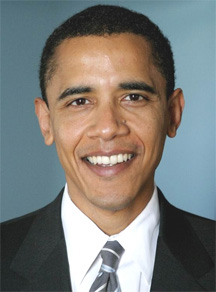By David Cay Johnston
The author is a Reuters columnist. The opinions expressed are his own.
(Reuters) – A new report from London and President Barack Obama’s statements to the “60 Minutes” programme show financial crimes spreading like wildfire and governments failing to stop them.

Tax evasion equals 18 percent of global tax collections, a new report by British accountant Richard Murphy shows. His report for the Tax Justice Network cleverly lined up a World Bank Report on the size of shadow econo-mies with a Heritage Founda-tion report on average tax burdens by country to reach that figure. http://link.reuters. com/cun55s
Murphy’s $3 trillion estimate, 5 percent of the global economy, shows how a combination of weak rules on accounting and disclosure combined with inadequate budgets to enforce tax laws impose a terrible cost on honest taxpayers and the beneficiaries of government service.
While the United States has one of the most effective tax regimes, especially for on-the-books wage earners and pensioners, and one of the smallest underground or shadow economies, it has the largest amount of tax evasion measured in dollars.
Murphy’s report covers 145 countries that generated $61.7 trillion of gross product, 98.2 percent of the world total. The 145 countries had only 61.7 percent of world population, a reminder of how poor the more than 2.7 billion people in the other 90 countries are.
Murphy estimates U.S. tax evasion at $337.3 billion, 10.7 percent of the global figure and close enough to the official Internal Revenue Service tax gap estimates to be credible.
The United States has lower tax rates than eight of the nine other top 10 tax evasion countries. Rampant evasion in America raises doubts about the notion that high tax rates fuel evasion.
WHY NO PROSECUTIONS?
Another sort of financial crime was discussed when journalist Steve Kroft, interviewing Obama for CBS’s “60 Minutes,” cited a poll showing that 42 percent of Americans believe Obama’s policies favor Wall Street. Kroft said he suspects that is because “there’s not been any prosecutions, criminal prosecutions, of people on Wall Street.”
Obama deftly avoided the issue. “Some of the most damaging behavior on Wall Street, in some cases, some of the least ethical behavior on Wall Street, wasn’t illegal. That’s exactly why we had to change the laws.”
Shame on Kroft for not following up with the obvious question: “Where are the prosecutions of those who did commit crimes, Mr. President?”
There is no need for new laws to rein in fraud, the evidence of which is pervasive, reported in detail by our savviest journalists, thoroughly documented in academic reports and in all manner of official government reviews.
Obama then ever so subtly shifted gears, telling Kroft “and that’s why we put in place the toughest financial reform package since FDR and the Great Depression. And that law is not yet fully implemented…”
Obama’s words neatly conflated two separate issues.
One is atrocious business judgment that should have wiped out the wealth of those who invested in the speculative derivatives casinos. That might have restored Wall Street as a home to investment houses that marshaled capital for productive investments.
The other issue is fraud.
Juries often fail to grasp arcane regulations. A crime so complex that it takes a prosecutor a day for her opening argument invites reasonable doubt. But fraud is something juries do get. Show a jury falsified records and bald-faced lies in disclosure documents, then toss in testimony from insiders who pointed out the wrongdoing only to be told to shut up — or who got fired — and convictions follow.
A GROWTH INDUSTRY
We know this because during the savings and loan crisis two decades ago juries convicted in more than three thousand cases, including more than a thousand major felony cases committed by senior insiders.
The man most responsible for those convictions was Bill Black, a federal banking regulatory lawyer at the time who now teaches about white-collar crime as a professor at the University of Missouri-Kansas City law school.
So has Obama or his Justice Department sought Black’s advice? “No,” Black told me.
Instead Obama leans on Treasury Secretary Timothy Geithner, who was worse than a sightless sheriff when he presided over the Federal Reserve in New York. Geithner not only failed to stop the looting, he actually shut down investigators who were onto the frauds because he said he worried that the institutions he was supposed to regulate were too fragile to withstand scrutiny.
The worst part of this is that the statements of the leading Republicans in the 2012 election campaign who seek to succeed Obama, a Democrat, make clear they have no interest in putting Wall Street criminals behind bars either.
Financial theft is a growth industry because of government failures that I attribute to excessive reliance on the financier class for advice, campaign donations and absurdly well-paid jobs for officials between their government jobs.
Will the next journalist who interviews President Obama please press the issue: where are the banking fraud prosecutions, Mr. President? And don’t let up until the president picks up the phone and tells Attorney General Eric Holder he wants 1,000 or more major felony indictments in the next nine months.
